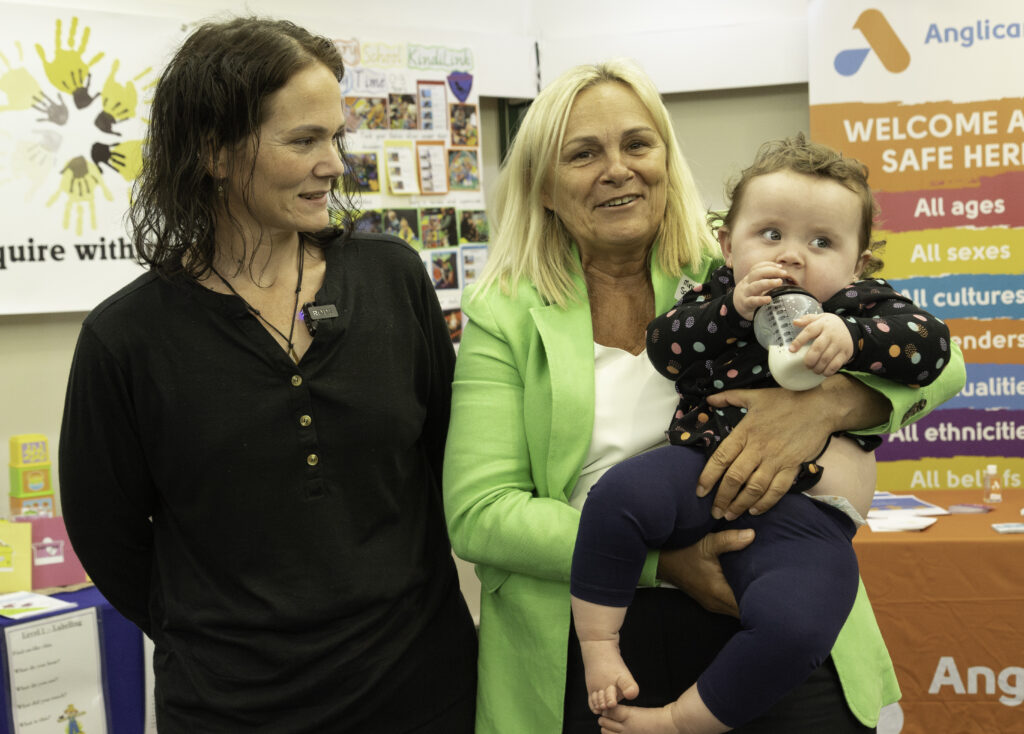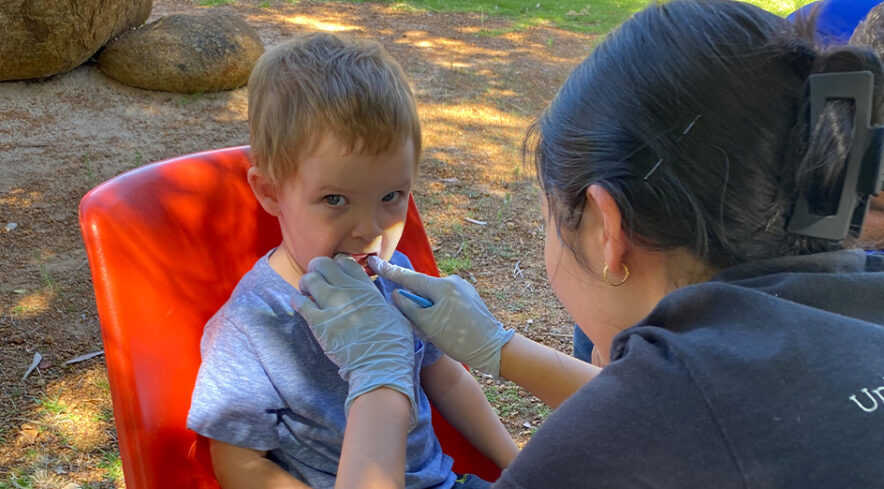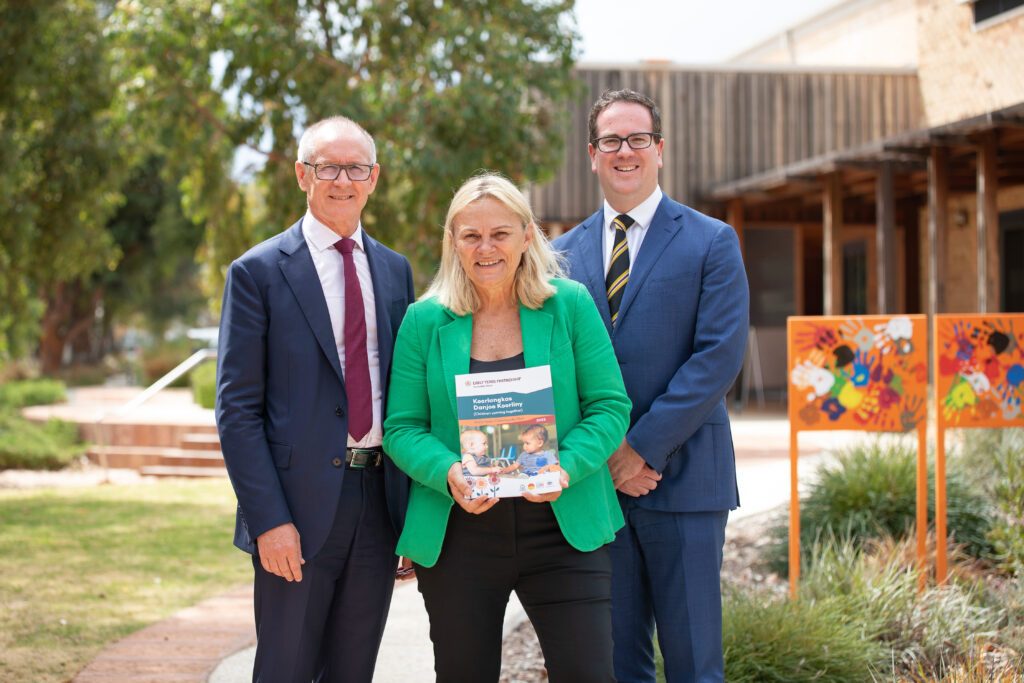Kimberley community writes plan for 'happy, strong, small children' with playgrounds, grog bans
The plan aims at addressing the recent troubles plaguing communities across northern Western Australia, outlining a series of priorities that ensure young children thrive.
Glenys Benning and her family are steeped in Derby history.
A Nyikina woman, she chairs the Ngunga Group Womens Aboriginal Corporation and has seen the world change around the small Kimberley town, 2,200km north of Perth, in the past decade.
“I grew up on a native reserve and we had elders,” she said.
“The younger generation of families, they suffer.”
Ms Benning is part of a group of Derby women who have helped to write a new community plan aimed at addressing the recent troubles plaguing the town, and other communities across northern Western Australia.
The women, the state government, and the Minderoo Foundation launched the plan they have been working on for the past five years this week.
It outlines a series of priorities the community wants to see addressed to ensure young children, predominantly aged between birth and four, thrive.
The goal is to create a community full of “happy, strong, small children”.
The plan is tailored to children living in outback communities like Derby, Mowanjum, and Pandanus Park, and recommends strategies such as teaching parents how to register a child’s birth, and broader liquor restrictions to avoid substance abuse.
Ms Benning said, after five years of planning, it was a powerful moment to see the community come together and demand change.
“[Implementing] the plan is going to be hard work — but also rewarding,” she said.
Community looks for solutions to woes
The Wirriya Dunyji Ooba Babamil Injun plan — meaning happy, strong, small children — is a 48-page document and reveals confronting statistics about children growing up in northern WA.
Derby children are considered two-and-a-half times more likely to be developmentally vulnerable than other WA kids.
About 72 per cent of children had some experience of family violence in Derby between April 1, 2022, and March 31, 2023.
Births to Derby women aged between 15 and 19 are nearly five times higher than the WA average.
While the statistics were confronting, Derby woman and collaborator Rowena Mouda said it was important to confront them and act accordingly.
“We care about our community, we care about our children, and we care about our mums and dads, and our carers,” Ms Mouda said.
Other goals outlined in the plan include a playground for Pandanus Park, the introduction of a cultural awareness check — similar to a working with children check — and re-establishing the old Mowanjum community store.
She said having the Ngunga women’s group and locals develop the plan meant it already had credibility.
Ms Mouda said having locals run its implementation was key, as engaging local families was crucial.
“The first time we went to one house, [the family] didn’t come to the door,” she said.
“By the fourth time we went there [the family] said, ‘Yes, I’m happy to engage’.”
Backed by authorities
Ms Mouda and Ms Benning were supported at the launch by WA Minister for Communities Sabine Winton and former South Australian premier Jay Weatherill.
Mr Weatherill is now the Minderoo Foundation public affairs director, and said the new plan was a social policy model he hoped other states would adopt in the future.
“At its heart, [this plan] is local communities … telling us about what they need,” he said.
“And then big government systems adjusting their methods of operation to fit in with what works for community.
“It sounds simple, but it’s ferociously difficult.
“Governments are used to providing services that have a degree of uniformity across the whole state, so it’s challenging for them to tailor their offering to particular communities.
“That’s what this initiative gives us the opportunity to do.”
The plan will be reviewed annually.
Image credit: Around 50 people, including directors-general from government departments and local police, gathered for the launch of the plan. (ABC Kimberley: Hannah Murphy)


